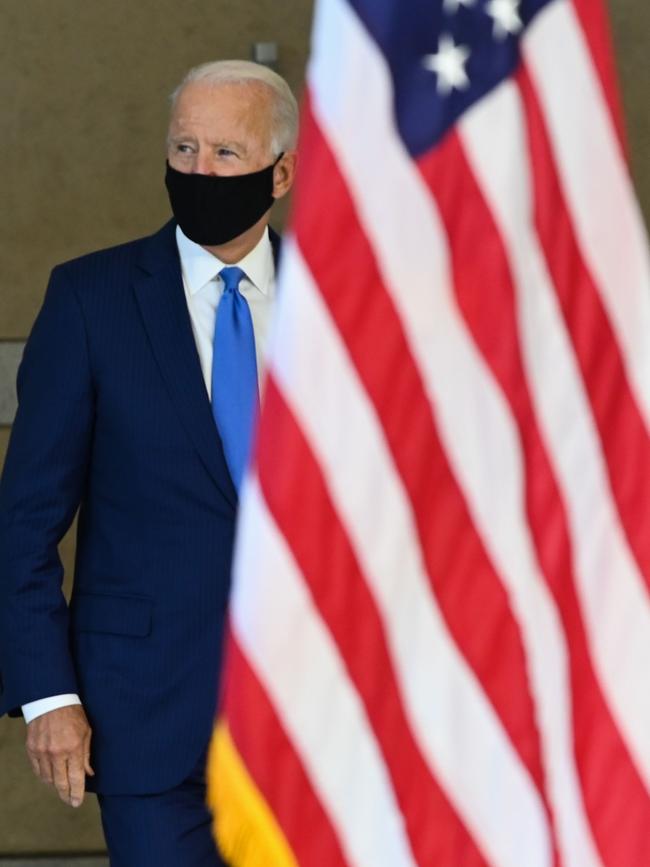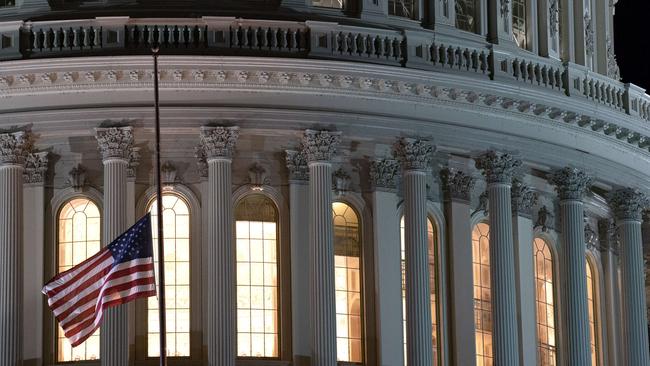Supreme Court battle carries wider judicial warning
America’s Supreme Court battles sound a fearsome warning for us all of the dangers of politicising the judiciary.
Whatever one may think of the politics of Ruth Bader Ginsburg, the revered liberal justice on the US Supreme Court who died at the weekend at the age of 87, there can be no doubt that she was a stellar judicial figure.
But goodness, what a time to die! For her passing unleashes a bitter political struggle which may affect the outcome of the US presidential election in six weeks’ time.
President Trump and senior Republicans are determined to appoint a conservative justice to fill Ginsburg’s place. The Democrats have gone ballistic, insisting that the nomination should wait until a new president is installed, as RBG herself requested on her death bed.

By tradition, new justices aren’t appointed in the final period of a presidency. In 2016, President Obama’s attempt to appoint the liberal Merrick Garland as the replacement for Antonin Scalia, the conservative judge who died ten months before that year’s election, was vetoed by the Senate’s Republican majority. So pots and kettles on both sides, then.
Whatever the ethics of the timing, the threats of retaliation being made by the Democrats – including packing the court to ensure a liberal majority – are distinctly unconstitutional.
US presidents make Supreme Court appointments from their own party 85 per cent of the time. So the politics of the president affects the composition of the court.
In Britain, by contrast, the judiciary is independent of political influence. In recent decades, however, concern has grown that senior judges have been crossing the boundary between law and politics. This is largely due to two reasons: the growth of judicial review of ministerial decisions and the development of human rights law which requires judges to interpret often contentious cultural issues that parliament hasn’t considered. These have sharpened the underlying tension between politicians and judges, with each side accusing the other of undermining democracy.
In the 1980s, when judicial review took off, some judges said they were addressing the democratic deficit caused by the three-term Thatcher government and the fact that there was no effective alternative from a weak Labour Party. Others were horrified that judges were turning themselves into a political opposition force.

Now Britain is again in one of its periodic bouts of jousting between government and judiciary. Since the Brexit vote, judges have decided in two cases brought by Gina Miller that parliament rather than the government should decide how the UK should handle Brexit. In both cases, the courts claimed they were upholding the sovereignty of parliament against the government. Both claims were dubious.
The High Court ruled in 2016 that MPs, not ministers, had the power to trigger the Article 50 process to leave the EU. Its ruling was upheld by the Supreme Court. In the second case, brought last year, the Supreme Court created new law with its decision that Boris Johnson’s suspension of parliament was illegal.
Now the government is embarking on a crude (and almost certainly doomed) attempt in the Internal Market Bill to stop the courts from challenging government decisions. The bill says that regulations to be made by ministers “are not to be regarded as unlawful on the grounds of any incompatibility or inconsistency with relevant international or domestic law”.
This attempt is bound to fail. Previous “ouster” clauses, in which ministers legislated to stop the courts overturning ministerial decisions, have generally produced even fiercer interventions by the judges against them.

The COVID-19 crisis is exacerbating this tug-of-war. The government’s emergency regulations are effectively being rubber-stamped by parliament without debate. This has given rise to dozens of new cases of judicial review. In a book of essays published by the Legal Action Group, the former president of the Supreme Court, Baroness Hale, laments that parliament “surrendered” its role to the government over the passing of its emergency powers. But that’s only because, as she acknowledges, parliament has allowed itself to be thus bypassed. It could have insisted on debating every regulation, or retrospectively abolishing them, or passing a law requiring that all future regulations were subject to a vote. It could have done all these things but didn’t. This is how parliament has chosen to behave; there is no democratic vacuum to fill.
The tension between government and MPs is normally a self-regulating mechanism. If MPs threaten to revolt against proposed legislation, compromises are worked out. But if enough MPs actually revolt, as happened over Brexit, the government is powerless.
Very bad blood was created during the Brexit battle by both parliament and the courts accusing each other of arrogance. By undermining the authority of both politicians and judges, this itself threatens our form of democracy.
Both sides should pull back. America’s Supreme Court battles sound a fearsome warning of the dangers of politicising the judiciary and the need to maintain Britain’s delicate, if uneasy, equilibrium between courts and government.
The Times



To join the conversation, please log in. Don't have an account? Register
Join the conversation, you are commenting as Logout